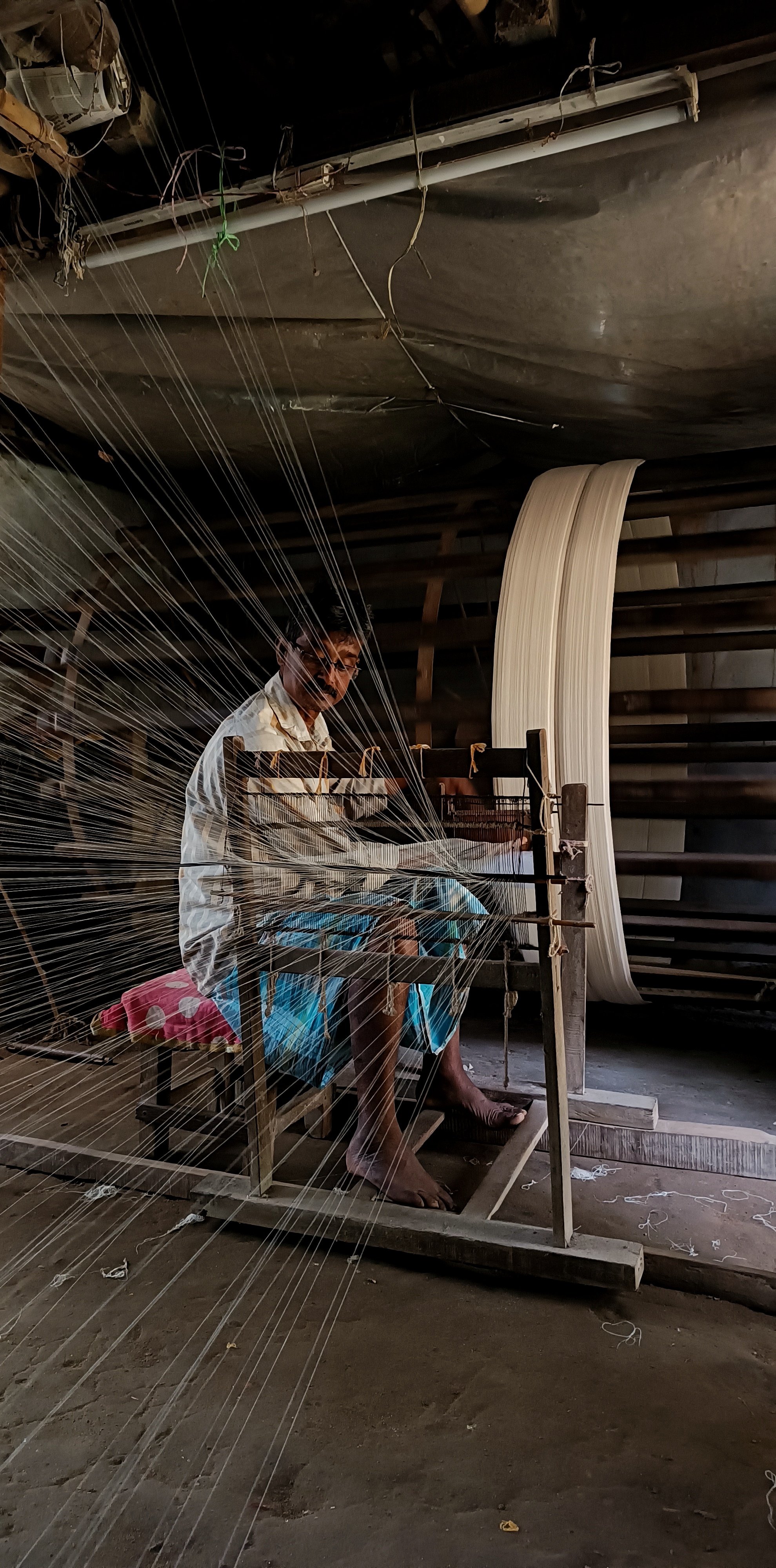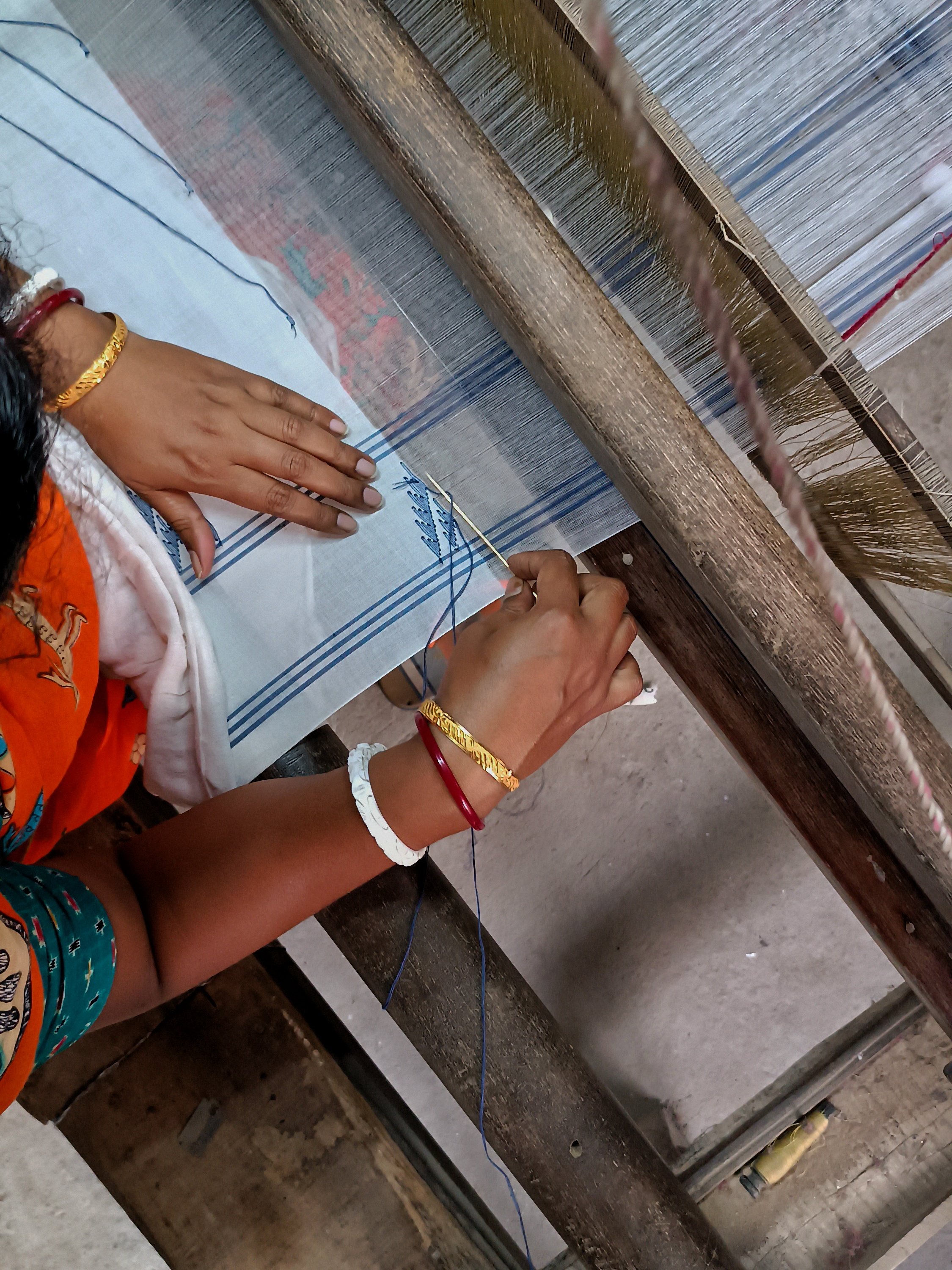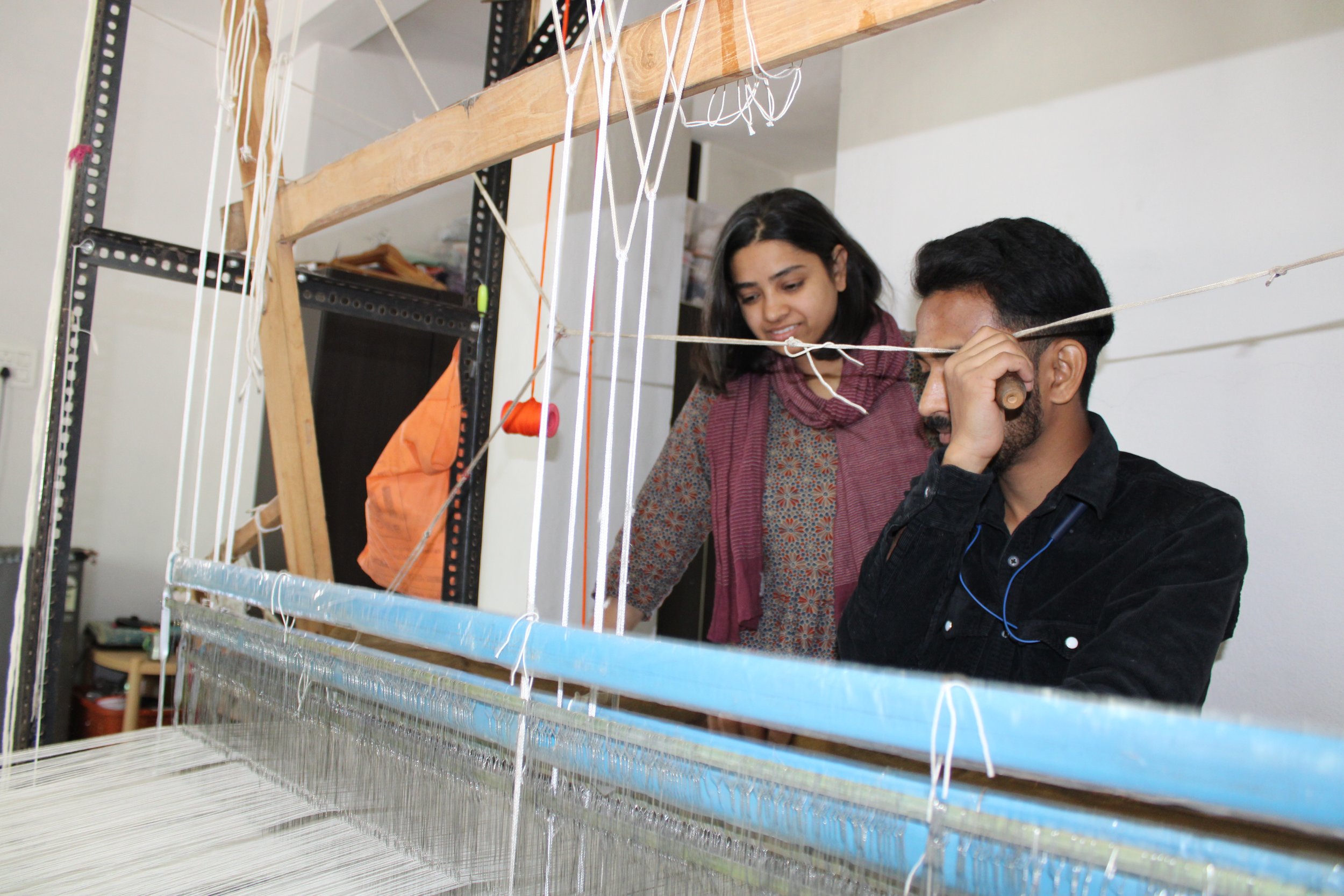In 2020, Nivedita Rai and Sourodip Ghosh founded Karghewale in Maheshwar, Madhya Pradesh to provide comprehensive support to the weaver-entrepreneur community, with a focus on textiles, apparel, and handicrafts. Karghewale serves as a one-stop solution for B2B clients in need of textile and handicraft products, though they also offer some items directly to customers through their website. Their services encompass market access, design and production training, cataloging digital market linkages, and other business support services.
CEO Nivedita Rai brings valuable experience as the former Executive Director of Gudi Mudi Khadi—a flagship project of WomenWeave Charitable Trust—where she played a key role in strategy, future planning, and market development for handwoven textiles. She was also a part of the esteemed Acumen Fellowship in 2019, alongside other changemakers in India. Her co-founder Sourodip Ghosh served as the Executive Director of The Handloom School—an innovative initiative of WomenWeave Charitable Trust. With a focus on artisan education, he contributed to curriculum development and worked extensively with marginalized communities through his involvement with grassroots organizations like Nav Bharat Jagriti Kendra and PRADAN. They are also both graduates from the Institute of Rural Management, Anand (IRMA).
We engaged in a conversation with Nivedita and Sourodip to learn more about their goal to support wage-weavers as they transition to weaver-entrepreneurs, in addition to building agency and ability in artisans. Read the Q&A below!
Q. What motivated you to start Khargewale?
Nivedita: While working at the WomenWeave Charitable Trust, we noticed several gaps in the sector and a lack of effective solutions to address those issues.
Sourodip: Despite numerous interventions in the craft sector, the core problem persisted, particularly in handloom: we realized that handloom artisans in India continued to earn inadequate monthly wages despite the increasingly growing global market for handloom and handicraft products. The disconnect intrigued us!
Nivedita: It inspired us to take action and start Karghewale. With our business, we identified specific problems and devised models to tackle them while laying the foundation for our entrepreneurial journey.
Q. What role do you think your business plays in the lives of the artisans you employ?
Nivedita: Some of the graduates from the Handloom School that Sourodip was leading joined Karghewale as artisans. Since they had already spent six months in training, we saw quite a bit of development in them, both personally and professionally.
They had increased confidence. They had learned to apply concepts like unit economics and color theory to their businesses. They could easily collaborate with designers, create collections, and also grasp marketing concepts. They even had a better understanding of clients’ taste and preferences and were earning annual revenues of around INR 20,00,000 to 25,00,000.
Sourodip: Usually, after graduating from the school, the typical trajectory for these individuals is to be on their own, as educational institutions are primarily focused on training and attracting the next batch.
On the other hand, we envisioned Karghewale as a postgraduate fellowship. We provide graduates with a platform to unleash their creativity and design skills. Through incubation, they have the time and space to reflect on their design identities and decide the type of products they want to create. This process allows them to develop confidence in themselves and their products.
Q. What is your vision for Khargewale?
Sourodip: Currently, we have only 25 active artisan-designers but our goal is to increase this number to at least 100 in the next three years. Since our incubatees are already expanding their individual network of artisan partners to 5 now, we are able to create a sustainable model with a rolling cohort of 100 artisans. Since the artisans retain their intellectual property, they can independently grow their businesses. But we also wish to increase their monthly income by increasing sales, at least up to 100 units. This is our first vision!
Our second vision is to encourage more organizations to adopt the Karghewale approach and enhance the creative agency of artisans by shedding light on the advantages of a resource-light model. Currently only 2% of craft sector artisans are artisan-designer entrepreneurs, but with an increased adoption of our model, this percentage can increase to 20%, resulting in higher wages and a more stable sector.
Q. What is keeping you up at night?
Nivedita: The pressure to grow and deliver quickly can overshadow our creative agency, hence finding a way to strike this balance keeps me up at night. We aim to educate consumers about our approach and establish processes to ensure that we don't lose sight of our core values while also meeting our business demands.
Sourodip: Balancing client requirements and preserving the creative agency of artisans is a challenge in the craft industry. Scaling the business without compromising the soul of the initiative is important. Our goal is to have 100 artisan-designers selling 10,000 units of artisan-design products per month in three years while still promoting creative freedom.
Q. What has been your biggest personal take-away in your entrepreneurial journey so far?
Nivedita: As an entrepreneur, I've experienced most of the highs and lows of running a business—some days feel extremely promising while others make me question the worth of my efforts. However, after two years in this journey, I've learned to navigate the challenges and accept both good and bad days as part of the overall experience. This has been a personal lesson for me!
Q. What is a piece of advice that you would like to give other aspiring entrepreneurs ?
Sourodip: Social entrepreneurs, especially those transitioning from a nonprofit to a for-profit business, often struggle to strike a balance between social impact and a sustainable business model.
If you find value in an idea, it is important to trust yourself to recognize its potential. We would encourage sticking with the idea for a period of time to see if it can be made successful. You might receive different opinions as everyone brings their own perspective to the table but it is essential to acknowledge that your experiences are just as valid as anyone else’s.
Upaya’s Dignified Jobs Accelerator, in partnership with Yunus Social Business, focuses on building investment-readiness capacity for early-stage social businesses that create livelihood opportunities in an inclusive and equitable manner for those in extreme poverty. You can learn more about the accelerator here!
Every year the applications for the cohort open by the first week of September. Follow us on LinkedIn for more updates on the program.
















The Tribal Hermit is a social impact venture that works closely with 130+ Dhokra craft artisans from Kondagaon, Bastar, and Raigarh districts of Chhattisgarh to design, create, and sell their products.